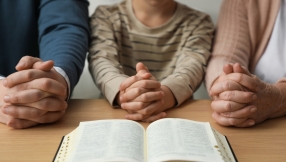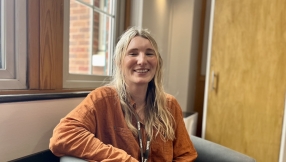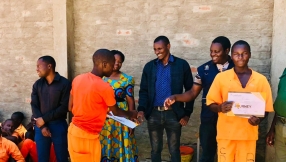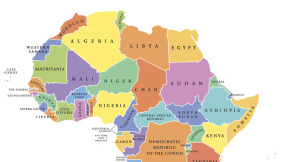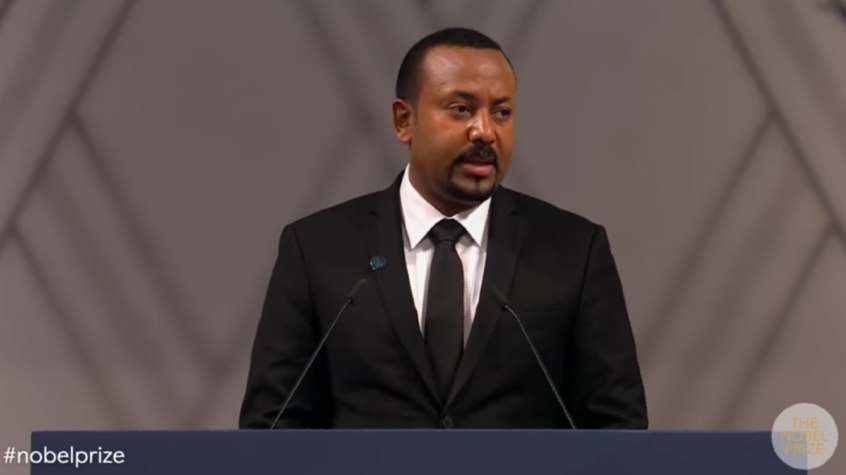
When I heard that Abiy Ahmed Ali, prime minister of Ethiopia, had won the Nobel Peace Prize for 2019 I admit that my main reason for rejoicing was that he wasn't the bookies' favourite Greta Thunberg.
It turns out that there is another reason to welcome the award: Abiy, who was brought up a Muslim, 'is a devout Evangelical Pentecostal Christian of the Full Gospel Believers' Church'.
Though he is a Pentecostal, the term 'Pente' is used throughout Ethiopia to refer to all evangelicals. This presumably includes the Ethiopian Evangelical Church Mekane Yesus, which means 'place of Jesus.' Mekane Yesus's 9million members make it one of the largest, if not the largest, Lutheran church in the world.
Although he has only been prime minister since April this year Abiy, unlike that other untested leader who received the Nobel Peace Prize, Barack Obama, deserves the honour. He has an impressive resume, including resolving Ethiopia's 20-year war with Eritrea which killed some 80,000.
He has mediated other regional political crisis and conflicts, including in Sudan, where he helped broker talks between Sudan's pro-democracy protesters and the military to reach a power-sharing agreement for a transitional government. He has also been implementing long-needed democratic reforms in Ethiopia.
'Pentes' are not only growing numerically, they are gaining influence. Abiy Ahmed's predecessor, Hailemariam Desalegn, was a staunch Pentecostal. Lemma Megersa, the prime minister's closest ally and president of Oromia, Ethiopia's most populous region, is a board member of the Assemblies of God.
In much of Oromia, evangelicalism has grown with the rise of Oromo nationalism. Its influence has grown in part because sermons are conducted in the local language, Afan Oromo, rather than Ge'ez, the ancient language of Orthodox liturgy, akin to Latin for Catholics.
The rise of the Oromo wing of the ruling coalition, the Ethiopian People's Revolutionary Democratic Front (EPRDF), has brought even more evangelicals into the highest ranks of government. Most of the founders of the Oromo Liberation Front, a secessionist rebel group, were evangelicals.
In the 1960s evangelicals amounted to fewer than 1 per cent of Ethiopia's population. Today they may be as many as a quarter, packed into cities and among the fast-growing rural populations in the south and west of the nation.
Before the EPRDF introduced freedom of religion in 1995, evangelicals were fiercely persecuted by the state. When Abiy's church, Full Gospel Believers, tried to register in 1967, its application was rejected by Emperor Haile Selassie, a staunch upholder of the rights of the Ethiopian Orthodox Church. Arrests and beatings followed.
The persecution worsened under the communist regime known as the Derg. In 1979 church members were publicly flogged as punishment for not chanting socialist slogans. Popular hostility was rife, too. When an evangelical pastor's child died in infancy, some of his neighbours in southern Ethiopia dug up the grave and hung the corpse on a post as a warning to others. Yet even during those dark times Pentecostalism won converts.
The former guerillas who used to run the EPRDF drew a sharp line between religion and state when they came to power in 1991, but religion seems slowly to be returning to the public sphere. Although there are few signs that Abiy favours evangelicals at the expense of other faiths, religion seems to have shaped his politics. Many of his sermon-like speeches are about love and forgiveness and invoke God.
We in the West are often blinded by the weakness of the church here to assume that Christianity is losing ground. The evidence throughout the world would indicate otherwise.
Dr Campbell Campbell-Jack is a retired Presbyterian minister who lives in Stirlingshire. He blogs at A Grain of Sand where he looks at the Church and the world and wonders 'Why?'










